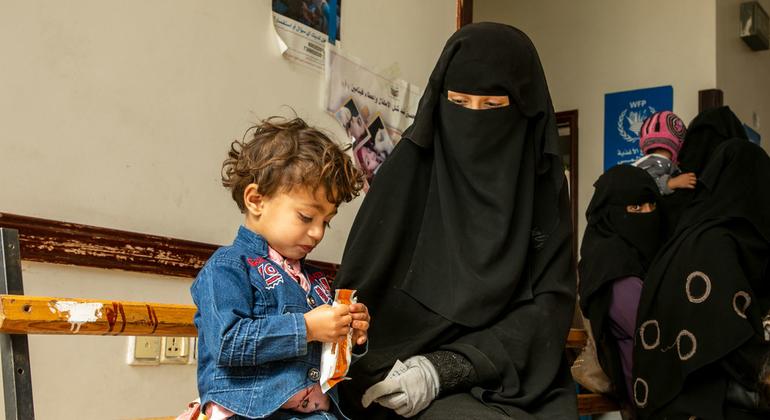The crisis in Yemen continues to worsen as a recent analysis by the Integrated Food Security Phase Classification (IPC) Technical Working Group reveals a sharp increase in malnutrition among young children. This surge in malnutrition is attributed to diseases such as cholera and malaria, high food insecurity, and limited access to safe drinking water and essential services in the war-torn country. Yemen has been embroiled in conflict and economic collapse for almost a decade, with Government forces, supported by a Saudi-led coalition, and Houthi rebels locked in a deadly struggle. As a result, more than 18 million people, over half of the population, are in need of humanitarian assistance to survive.
The report, covering the period from November 2023 to October 2024, highlights the alarming rise in acute malnutrition among children under five in Government-controlled areas. The number of affected children has increased by 34 per cent compared to the previous year, with approximately 600,000 boys and girls suffering from malnutrition, including 120,000 severely malnourished children. Additionally, around 223,000 pregnant and lactating women in these areas are also acutely malnourished. For the first time, extremely critical acute malnutrition has been reported in two districts in the southern lowlands of Hudaydah governorate and one district in Taiz, with another district in Taiz projected to join them. Immediate intervention is required in these districts to prevent increased morbidity and potential mortality among children under five.
Hudaydah and Taiz, already facing high rates of stunting (chronic malnutrition), are also experiencing a surge in acute malnutrition. The prevalence of acute malnutrition in Hudaydah has risen to 33.9 per cent from 25.9 per cent year on year. The report predicts that all 117 districts surveyed in Government-controlled areas, located in the south, will face “serious” levels of malnutrition or worse during the lean season from July to October. This situation underscores the urgent need for investment in and scaling up of prevention and treatment efforts to protect vulnerable women, girls, and boys in Yemen.
Peter Hawkins, the UN Children’s Fund (UNICEF) Representative to Yemen, emphasizes the critical importance of addressing the root causes of acute malnutrition in Yemen through increased support and action. UNICEF, along with sister UN agencies such as the World Food Programme (WFP), the Food and Agriculture Organization (FAO), and the World Health Organization (WHO), are calling for immediate assistance to strengthen existing social protection, health, food, water, sanitation, and hygiene systems in Yemen. They stress that ending the protracted conflict and restoring peace are essential to addressing the challenges faced by the Yemeni people, who have endured a lack of basic services, frequent displacements, and a shattered economy and social fabric.
The dire situation in Yemen demands urgent attention and action from the international community to prevent further suffering and loss of life. The humanitarian crisis in the country is reaching catastrophic proportions, with millions of lives at stake. It is crucial for all stakeholders to come together and prioritize the well-being and survival of the Yemeni population by providing the necessary support, resources, and efforts to alleviate their suffering and build a sustainable future for the war-torn nation.









